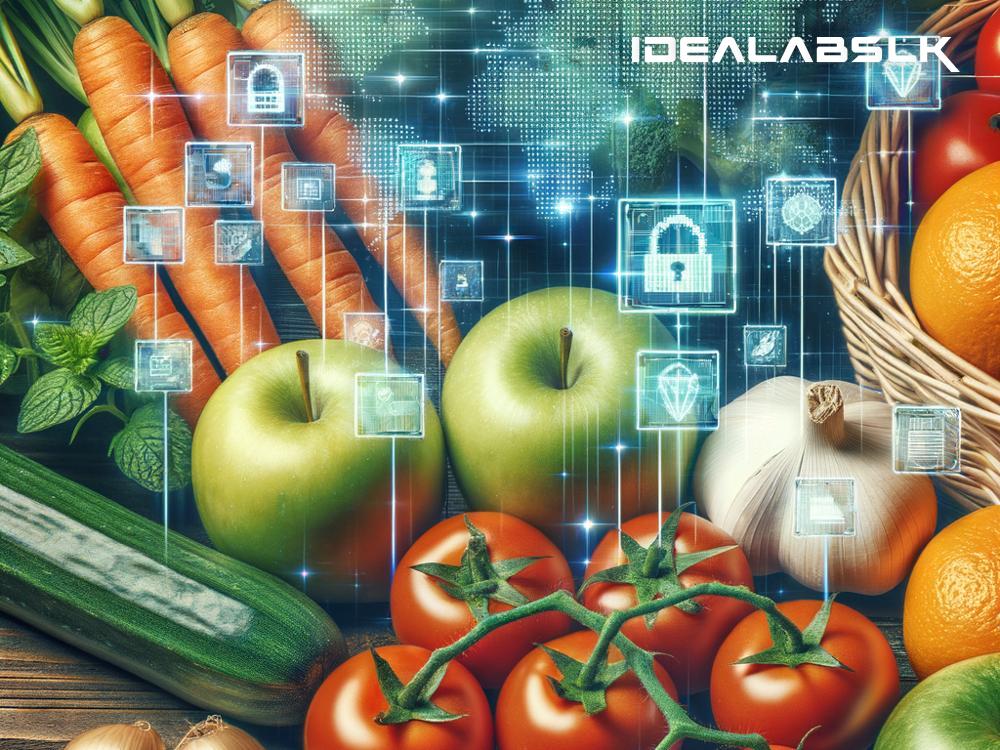Boosting Trust Bite by Bite: How Blockchain is Transforming Organic Food Labeling
In today's health-conscious world, more and more people are opting for organic foods, drawn by their promise of being cleaner, healthier, and free of synthetic chemicals. However, with the booming demand for organic products, there's been a growing concern about how trustable these "organic" labels really are. Enter Blockchain technology, a revolutionary approach that's changing the game of transparency in organic food labeling, ensuring that when a product says it's organic, you can trust it wholeheartedly.
So, what exactly is Blockchain? Think of it as a digital ledger or a record book that's not just held by one person or company, but is shared across thousands of computers worldwide. Once information is entered into this ledger, it can't be tampered with, making it a robust tool for transparency. Now, let's dive deeper into how this technology is reshaping the trustworthiness of organic food labels.
Traceability from Farm to Fork
At the heart of many consumers' worries is the journey of their food - from where it's grown to how it gets to their plates. Blockchain technology shines in illuminating this path vividly. Every step of an organic product's journey can be recorded and tracked in real-time on the blockchain. This means you can see when and where your organic apples were picked, how they were transported, and every stop they made on their way to your local supermarket shelf. It's like having a GPS tracker for your food, ensuring that each step maintains organic integrity.
No More Middle-Man Mysteries
One of the critical problems in the current supply chain is the middleman - the distributors, processors, and retailers - where information about the product can sometimes be lost or misrepresented. Blockchain cuts through this fog by providing a direct link between organic farmers and consumers. Each transaction, certification, and handling process is recorded, leaving little room for the kind of information manipulation or errors that can lead to mislabeled products. This direct transparency helps consumers to trust that when they buy an organic product, it hasn't been tampered with by any of the numerous hands it has passed through.
Certification You Can Check Yourself
Organic certification is a rigorous and costly process that farms must go through to label their products as organic. Sadly, cases of fraudulent certifications have popped up, shaking consumer confidence. Blockchain technology tackles this issue head-on. Certifications and their renewals can be stored on the blockchain, accessible to anyone at any time. This means you can quickly check if the farm where your organic carrots were grown is genuinely certified organic, adding an extra layer of trust to your purchase.
A New Era of Consumer Empowerment
Perhaps the most impactful aspect of blockchain in organic food labeling is how it empowers you, the consumer. With more information at your fingertips, you're no longer a passive participant in the food industry. Instead, you become a knowledgeable, confident decision-maker about what you eat. Knowing the full story of your food not only satisfies your curiosity but also feeds your commitment to a healthier lifestyle and a more sustainable world.
Facing the Challenges Head-On
As rosy as it sounds, integrating blockchain into the organic food industry is not without its challenges. The technology is still new, and its adoption requires significant investment and training. Small-scale organic farmers, in particular, might find it difficult to jump on the blockchain bandwagon due to these costs. Moreover, the effectiveness of blockchain depends on the honest input of data. If fraudulent information is entered at any point, the system's trustworthiness can be compromised.
Despite these hurdles, the potential benefits of blockchain in ensuring organic food labeling transparency are too significant to ignore. With consumers increasingly willing to pay a premium for trustworthy organic products, the motivation for the food industry to adopt this technology continues to grow.
Conclusion: A Future Worth Investing In
Blockchain technology offers a tantalizing glimpse into a future where organic food labels are indisputably trustworthy. By ensuring transparency, traceability, and integrity at every step of the supply chain, blockchain empowers not only consumers but the entire organic food industry. It encourages cleaner farming practices and a more honest market, proving that technology and nature can indeed work hand in hand for a healthier planet. As we move forward, it's clear that investing in blockchain for organic food transparency isn't just about better business - it's about building a better world, one organic bite at a time.

